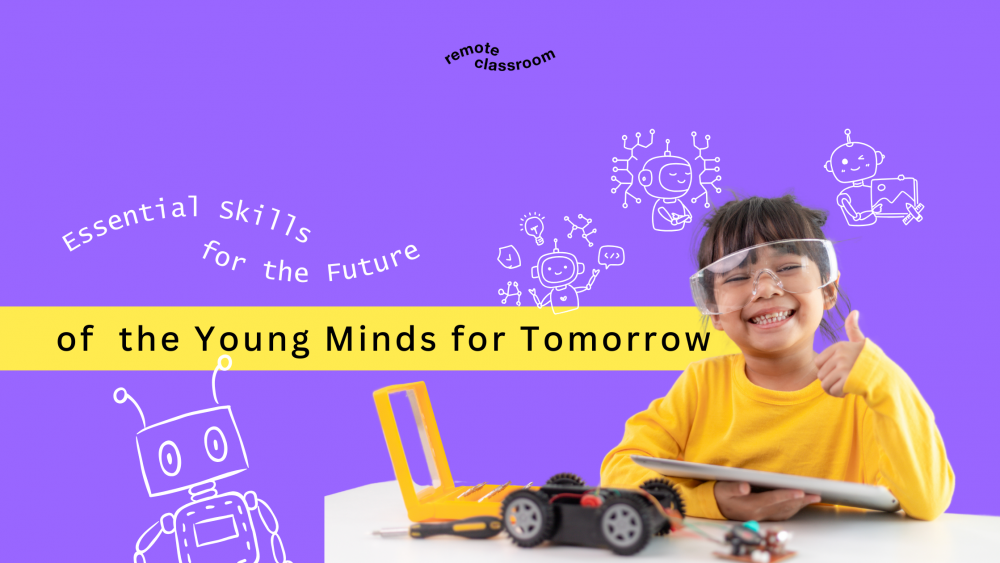The current state of education is at a crossroads. Traditional educational models, which have remained relatively unchanged for decades, are increasingly being challenged by rapid technological advancements. These developments have exposed the limitations of outdated teaching methods and curricula, prompting an urgent need for a shift toward modern education. Modern education leverages technology, embraces innovative teaching methods and focuses on developing a broad set of skills that are crucial for success in the 21st century. It is designed to prepare young learners for a future that is dynamic, interconnected, and increasingly reliant on digital literacy.
What is Modern Education?
Modern education represents a departure from age-old teaching methods. It boldly embraces contemporary pedagogical approaches, intertwining seamlessly with technology to elevate the learning experience. Unlike the teacher-centric classrooms of the past, modern education leverages tools such as smart boards, online platforms, and multimedia resources. It aims not only to impart knowledge but also to foster critical thinking, creativity, and adaptability.
What are young learners’ essential skills to develop?
In an era influenced by rapid technological advancements and shifting job markets, it is crucial to focus on what skills young learners need to develop to thrive in the future. Traditional education methods are no longer sufficient to prepare students for the complexities of the modern world. Instead, fostering a set of essential skills—such as critical thinking, creativity, collaboration, digital literacy, and emotional intelligence—will equip young learners to navigate and succeed in an ever-evolving landscape. These skills not only align with emerging job opportunities but also empower students to become innovative, resilient, and globally-minded individuals.
Critical Thinking and Problem Solving Empowering Future Innovators
In a world where information is readily accessible, the ability to think critically and solve complex problems is paramount. Critical thinking enables students to analyze information, question assumptions, and make informed decisions. Problem-solving skills are essential for overcoming challenges and finding innovative solutions in any field. As automation and AI take over routine tasks, the demand for individuals who can tackle complex, non-routine problems will continue to grow. Future jobs such as AI ethicist, data analyst, and sustainability consultant will require these critical thinking and problem-solving skills.
Creativity and Innovation Fostering Imagination and Originality
Creativity and innovation are the driving forces behind progress and development. Encouraging creativity in young learners helps them to think outside the box and develop original ideas. This skill is not limited to the arts but is equally important in fields like science, technology, and engineering. The ability to innovate is what sets apart leaders in any industry. Future careers such as virtual reality designer, biotechnologist, and renewable energy engineer will thrive on creative and innovative thinking.
Collaboration and Communication Building Effective Teams and Networks
In today’s globalized world, the ability to collaborate and communicate effectively is more important than ever. These skills involve working well with others, sharing ideas, and building consensus. Good communication skills are crucial for conveying ideas clearly and persuasively. Collaboration and communication are foundational for roles that involve teamwork and interaction with diverse groups, such as international business consultants, community managers, and digital marketing specialists.
Digital Literacy, Navigating the Digital Landscape
Digital literacy is the ability to use technology effectively and responsibly. As technology permeates every aspect of life, understanding how to navigate digital tools and platforms is essential. This includes not only basic computer skills but also knowledge of cybersecurity, data management, and digital content creation. Digital literacy is anchored on future roles such as cybersecurity analyst, data scientist, and social media strategist.
Adaptability and Resilience Thriving in a Changing World
The pace of change in today’s world means that adaptability and resilience are crucial skills. Adaptability involves being open to new ideas and changes, while resilience is about recovering from setbacks and staying focused on goals. These skills help individuals to cope with the unpredictability and pressures of the modern workplace. Future job roles such as climate change analyst, crisis manager, and innovation consultant will require high levels of adaptability and resilience.
Emotional Intelligence, Understanding and Managing Emotions
Emotional intelligence (EI) is the ability to recognize, understand, and manage one’s own emotions and the emotions of others. EI is critical for building relationships, leading teams, and managing stress. As the workplace becomes more collaborative and diverse, emotional intelligence will be a key differentiator in leadership and team-based roles. Future careers in human resources, counseling, and organizational development will greatly benefit from high emotional intelligence.
The urgency to embrace and develop these essential skills in young learners cannot be overstated. As technology continues to reshape the job market, it is imperative that educators and parents prepare children to thrive in this new landscape. By fostering critical thinking, creativity, collaboration, digital literacy, adaptability, emotional intelligence, and global citizenship, we equip the next generation with the tools they need to succeed. Future job opportunities will require a blend of these skills, and the time to start nurturing them is now. Only by adapting to modern educational practices can we ensure that our children are prepared to meet the challenges and seize the opportunities of tomorrow’s world.

